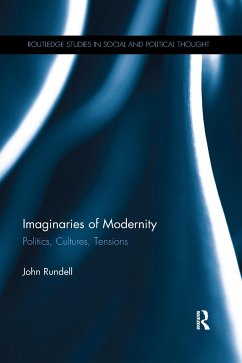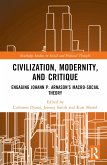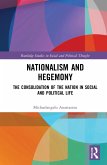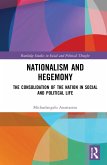This book offers a new perspective on the issue of modernity through a series of interconnected essays. Drawing centrally on the works of Castoriadis, Luhmann, Heller and Lefort, and in critical discussion with Weber, Durkheim, Simmel, Adorno, Habermas and Taylor, the author argues that modernity is not only a unique historical creation but also a multiple one.
With a focus on five broad themes - the problem of understanding of modernity after the decline of grand narratives; the complexity of the modern condition; politics, especially with reference to freedom and totalitarian regimes; the variety and density of modern life; and the centrality of a concept of culture to social and critical theory - John Rundell advances the view that modernity is not the outcome of an evolutionary process or historical development, but is unique and indeterminate, as are the constitutive dimensions that can be identified as 'modern'. There are, then, different modernities.
A rigorous engagement with a range of prominent and contemporary social theorists, Imaginaries of Modernity casts new light on the significance of understanding the multidimensional character of modernity and the plurality of its forms beyond the conventional paradigms associated with only the West. As such, it will appeal to scholars of social theory, critical theory, sociology and philosophy concerned with questions of culture, politics and modernity.
With a focus on five broad themes - the problem of understanding of modernity after the decline of grand narratives; the complexity of the modern condition; politics, especially with reference to freedom and totalitarian regimes; the variety and density of modern life; and the centrality of a concept of culture to social and critical theory - John Rundell advances the view that modernity is not the outcome of an evolutionary process or historical development, but is unique and indeterminate, as are the constitutive dimensions that can be identified as 'modern'. There are, then, different modernities.
A rigorous engagement with a range of prominent and contemporary social theorists, Imaginaries of Modernity casts new light on the significance of understanding the multidimensional character of modernity and the plurality of its forms beyond the conventional paradigms associated with only the West. As such, it will appeal to scholars of social theory, critical theory, sociology and philosophy concerned with questions of culture, politics and modernity.








